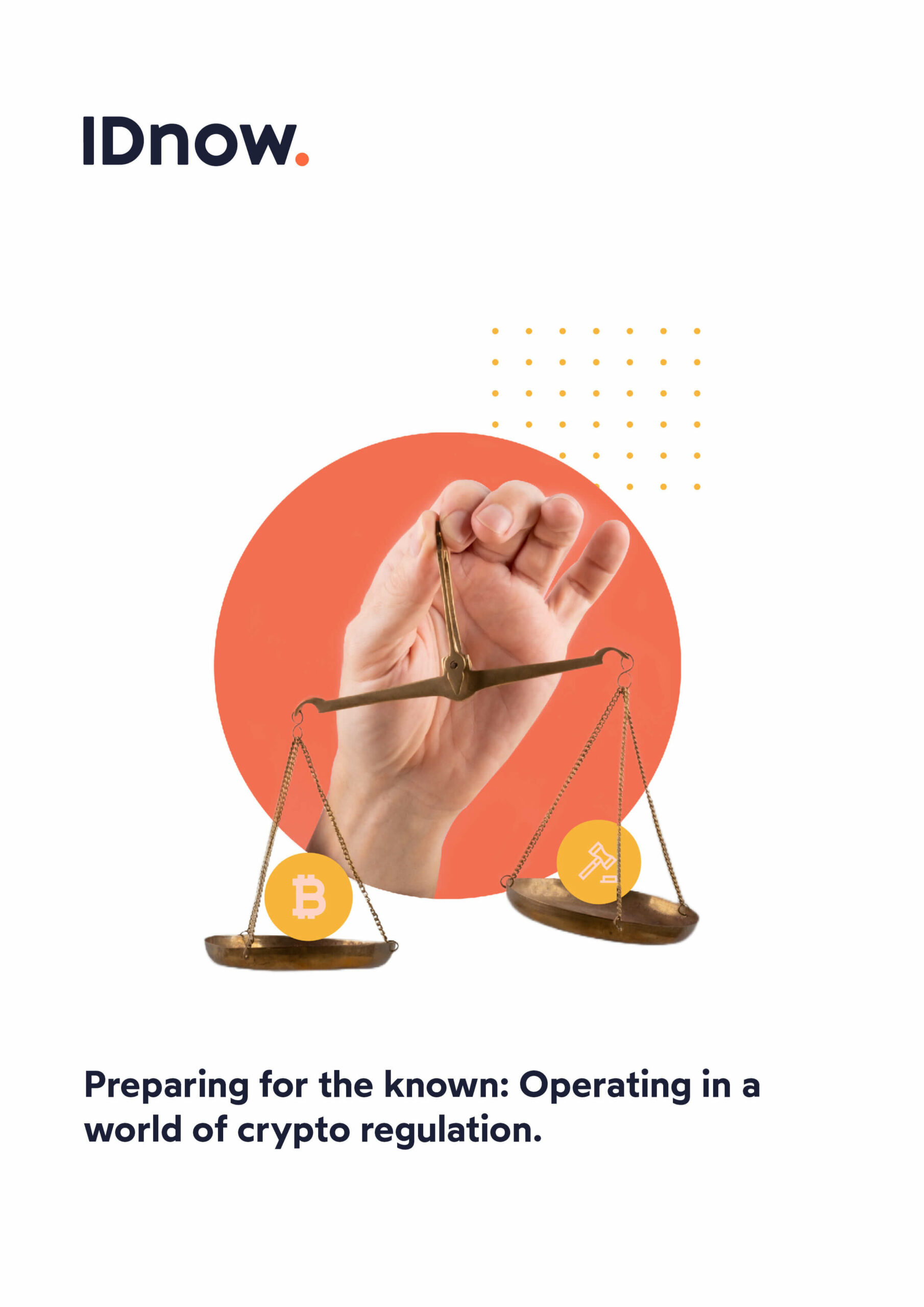Despite being one of the most challenging periods in crypto history, the cryptocurrency exchange giant has doubled down on its growth plans.
American crypto exchange giant Coinbase has announced plans to appoint new executives to its top team to boost its European expansion efforts.
The decision for Coinbase to focus on the European market seems like a natural step to take, considering the region’s recent efforts to bring stability and consistency to the market via the creation of the world’s most substantial crypto regulatory framework, MiCA and the complimentary Transfer in Funds (TFR) Act.
Coinbase, which counts over 73 million global users with operations in over one hundred countries, has promoted several of its long-serving employees to capitalize on the growing, yet still unstable market.
The new executive appointments come at a time when the industry is still reeling from the failure of FTX, which collapsed during a liquidity crisis in November, triggering widespread anxiety and igniting calls for stricter regulatory supervision of the crypto sector. Like other prominent crypto service providers, Coinbase is also suffering from the impact of the downturn in the crypto industry, which has only been exacerbated by FTX’s collapse.
The turmoil of the last few weeks has certainly impacted the reputation of the crypto market, with the full extent of the consequences of the crypto winter only to be revealed in the months to come. The “drip by drip” release of information regarding the FTX downfall makes long-term predictions more difficult. It also interferes with the ideal strategy of being able to move quickly in order to identify and address causes of mishaps, devise safeguards, and move on. In this unique case, however, new information continues to come to light on an almost daily basis, which would appear to be clear warning signs to industry insiders.
In the short term, Coinbase’s move will likely be seen as a positive, and lead to a renewed incentive by policymakers and regulators to ensure Europe can offer a safe and secure regulatory environment. It is also probable that with the arrival of such a large player, a benchmark of performance and conduct will be set. This will undoubtedly increase competition among the smaller, European crypto exchange platforms, and ultimately be a positive for the crypto consumer.
Breaking down and building up.
Despite Coinbase’s planned European expansion, in June 2022, it dismissed 1,100 employees, and a further 60 employees were laid off from its recruitment team in early November.
Some of its new appointments include the promotion of its long-serving employees. Patrick Elyas, formerly the Market Director of Expansion at Coinbase EMEA (Europe, the Middle East, and the African region), will now assume a role mainly focusing on European expansion. Elke Karksens will take over the position of Coinbase’s country director in the UK.
Michael Schroeder, previously working as Chief Compliance and Risk Officer at Bittrex, has been appointed as the director of controls for Germany. Corman Dinan, formerly serving as General Manager at Crypto.com in Ireland, will assume the role of director of Ireland.
Under the new executives’ supervision, Coinbase plans to broaden its customer base, introduce new digital financial products, expand into new markets, and join forces with regulators, policymakers, and financial institutions.
The new appointments are in keeping with Coinbase’s belief that Europe, the Middle East, and Africa were taking the initiative in creating a secure and suitable regulatory environment for crypto.
Nana Murugesan, Coinbase’s Vice President of International and Business Development, and Daniel Seifert, Regional Vice President and Managing Director, see the regions as standard setters, and an example of what can be achieved when the “political will” is present. According to Murugesan and Seifert, the repercussions and dangers for investors and clients of an offshore, unregulated entity have never been more evident than in the past few weeks.
Crypto in KYC – Growth through trust

Coinbase ceases support for 4 digital coins.
If any further evidence was needed to attest to how notoriously unpredictable the crypto market could be, on November 29, Coinbase announced that its Coinbase Wallet would no longer be supporting four digital coins: Bitcoin Cash (BCH), Stellar Lumens (XLM), Ethereum Classic (ETC), and Ripple (XRP) as of January 2023.
According to the exchange, the decision to delist these four leading digital coins is part of its regular evaluation to introduce new structures that will improve accessibility on Web3. Consequently, the exchange cited “low use” as its reason for ceasing its support for these crypto assets.
The exchange has assured customers that their balances from any of the now-delisted assets are still linked to their addresses, meaning they can access them via the Coinbase Wallet recovery process.
It is also worth mentioning that the announcement refers to the Coinbase Wallet and app discontinuing support for the digital coins. You can still buy the coins on Coinbase and Coinbase pro.
The abrupt delisting of XRP surprised many, considering it ranks as the seventh-largest crypto asset by market cap. Furthermore, XRP has been subject to a lot of speculation due to its ongoing litigation with the US Securities and Exchange Commision (SEC). With the summary judgment date nearing, it is a surprise that Coinbase decided not to wait to hear the results of the verdict.
The platform stopped the trading of XRP in January 2021 after a lawsuit between the issuer, Ripple, and the US SEC. Moreover, the crypto exchange backed investors initiating proceedings against the Department of Treasury against Tornado Cash over the sanction.
Because of this, the exchange revealed its transaction volume decreased by 44% from $655 million (second quarter of 2022) to $366 million in the third fiscal quarter (Q3 2022).
The decision to delist these crypto assets could be considered a risky move for Coinbase. Each coin possesses a great deal of support from the crypto community and could therefore discourage people from purchasing other digital currencies on their site in fear that they may also be delisted sooner than one would expect. That said, this perhaps further highlights the risk profile – or intelligence – of Coinbase. Despite “headwinds” they are making investment in growth, and are not alone, as just a week later Goldman Sachs announced it was preparing to make significant investment in crypto ecosystem assets.
Role of the regulators.
The chief priority for regulators and policymakers is to find the right balance between promoting financial stability and consumer protection and fostering innovation and accessibility in the financial markets.
Upcoming crypto regulations, such as MiCA and TFR, whose main objective is to facilitate the safe and responsible use of cryptocurrencies across the EU region, have clearly played a crucial role in Coinbase’s decision to enter the market.
These legal frameworks will improve the playing field for service providers and enable them to maintain high industry standards, provide greater protection, and build trust. At the same time, a legal framework and stricter verification requirements for crypto asset transfers to and from self-hosted wallets will enable service providers and customers a clearer path for further investment and growth within this ecosystem.
Leading by example.
Coinbase offers more than 170 crypto assets on its platform and is considered one of the most secure crypto exchanges. Many newcomers use the exchange to purchase their first ever crypto assets. The brand recognition as a trusted entry point cannot be underestimated as we enter a new phase of this crypto advancement in the mainstream.
There are, however, more than 500 other global crypto exchanges. While the smaller exchanges may tend to focus solely on the domestic or regional market, the larger ones attract customers from around the world.
The decision for a crypto company as large and influential as Coinbase to enter Europe should be welcomed by big and small crypto exchanges alike. Recent events have caused a lot of apprehension, and affected trust in the market, but this move shows that Coinbase maintains confidence in the industry and is demonstrating it while belts are being tightened globally.
Although 2022 has not been as successful a year for crypto as 2021, 2023 looks like it could well be the making for the crypto industry as service providers prepare for the final implementation of MiCA in 2024. Increased attention and awareness of crypto has led to a surge of interest from everyday users to multinational investment banks, as referenced above. With wider adoption, especially from global corporation comes more opportunities for registered crypto exchanges and traditional banks that may be looking to enter the space for the first time.
Putting the KYC into crypto.
KYC processes are an integral part in ensuring crypto exchanges can expand, even amid an evolving crypto regulatory landscape. Having these controls in place will protect investors from financial losses and add stability to a notoriously volatile market.
IDnow’s highly configurable identity verification solutions work across multiple regulations, industries and use cases, including crypto. Whether automated or expert-assisted, its online identity-proofing methods have been optimized to meet the strictest security standards and regulatory requirements without compromising on customer conversion or consumer experience.
For more insights into the world of crypto, including 2023 trends, check out our Fintech Spotlight Interview with Jason Tucker-Feltham.
By

Jason Tucker-Feltham
Head of Crypto Sales at IDnow
Connect with Jason on LinkedIn
Preparing for the known: Operating in a world of crypto regulation.




